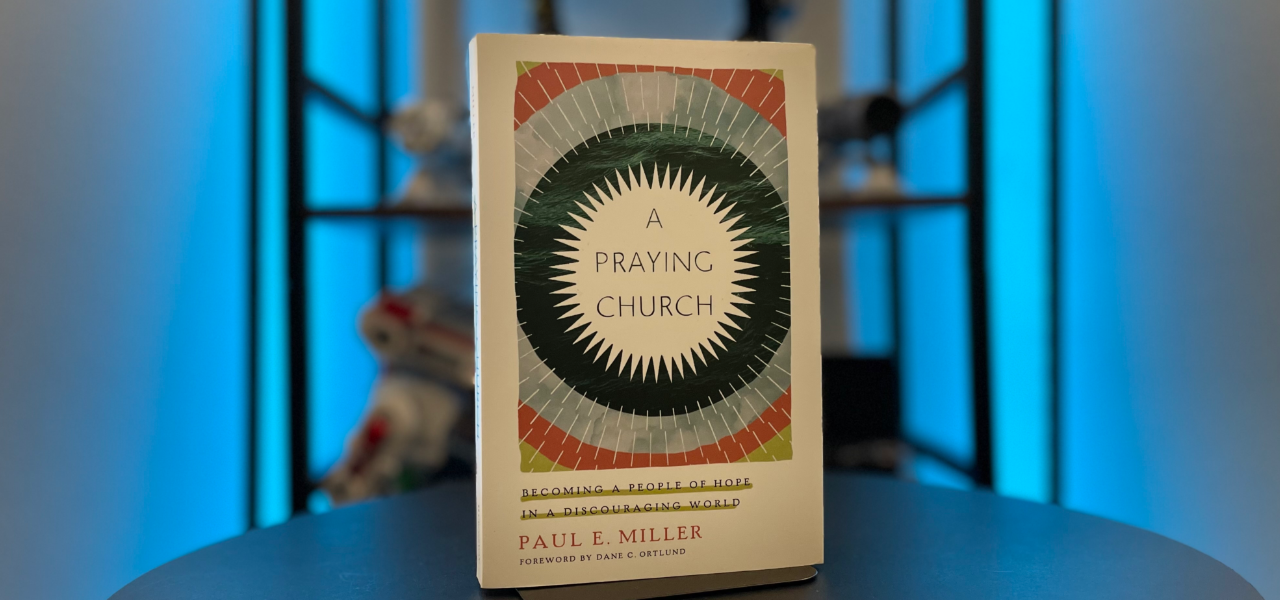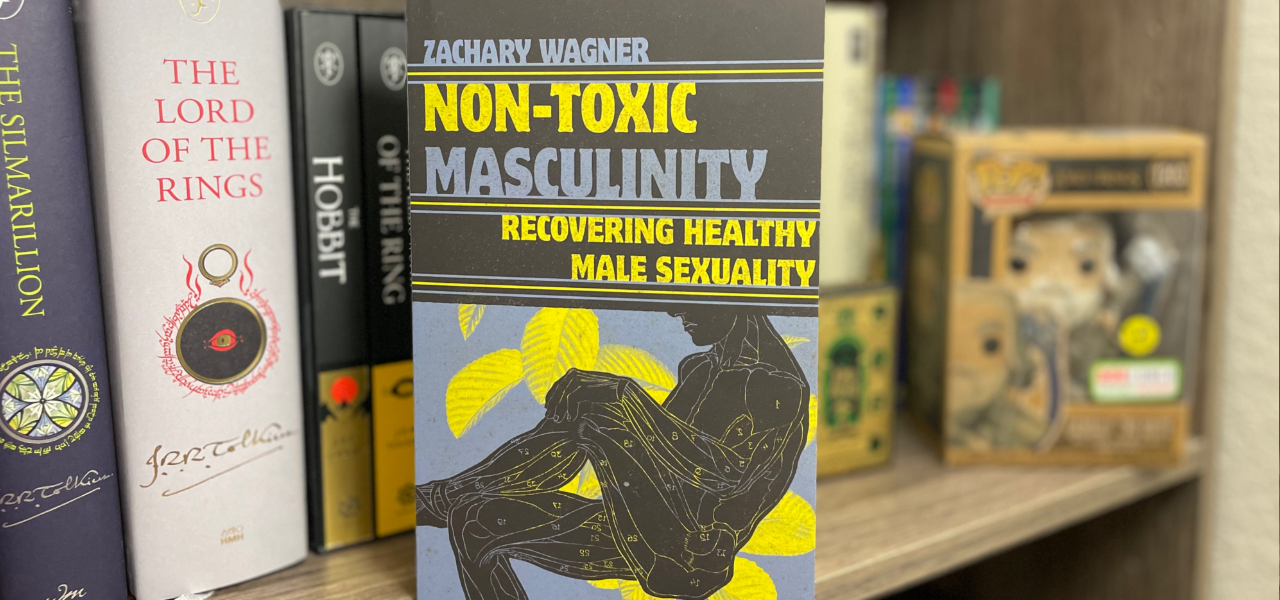The Beginning of the End: A Maundy Thursday Meditation

It’s the Thursday of Holy Week. Today the disciples begin to prepare to observe the traditional feast to commemorate God’s deliverance through their exodus out of Egypt - Passover. Jesus sends his disciples into the city to find a guy with a water jug and ask about an upper room. (Luke 22:10-13) They go and find the man and the room and prepare for the Passover meal as I am sure they had done many times before. The day was probably filled with excitement, but it was also very normal. This was a holiday that their people had been celebrating for thousands of years. No doubt they looked forward to it and, given the events of the week, there may have been some additional anticipation in their minds. But the Passover was nothing new. Despite the ordinariness of this event, Jesus was greatly looking forward to this meal. He was going to take this ancient moment to institute something new. We read about it in Luke 22:14-20.
Luke 22:14-20
When the hour came, he reclined at the table, and the apostles with him. Then he said to them, “I have fervently desired to eat this Passover with you before I suffer. For I tell you, I will not eat it again until it is fulfilled in the kingdom of God.” Then he took a cup, and after giving thanks, he said, “Take this and share it among yourselves. For I tell you, from now on I will not drink of the fruit of the vine until the kingdom of God comes.”
And he took bread, gave thanks, broke it, gave it to them, and said, “This is my body, which is given for you. Do this in remembrance of me.”
In the same way he also took the cup after supper and said, “This cup is the new covenant in my blood, which is poured out for you.
In the middle of the Passover meal Jesus uses the elements as signs to show the type of death he would die and in so doing institute a new covenant. From now on, they would remember a new and better deliverance. The bread and cup in communion serve as signs that remind us of the broken body and shed blood of Jesus. Eating and drinking were common practices when in the presence of God. It was symbolic of their relationship and communion with him. When the leaders of Israel went up on Mount Sinai to meet God they beheld God and ate and drank. (Exodus 24:9-11) In Deuteronomy, the people of Israel would tithe their crops so that they could take that 10% and feast before the Lord at the annual festival. (Deuteronomy 14:23-26) In the Old Testament, they had sacrifices and ceremonies and meals that would point to the fact that their sins were not yet paid for, because the sacrifices had to be repeated year after year. (Hebrews 10:1-4) When Jesus instituted communion he gave us a better meal because it reminds us that our sin has forever been paid for. There is no more sacrifice needed to be made. Jesus is showing us that he is the fulfillment of what the Passover was a shadow of.
After they had finished eating what Jesus does next is incredibly remarkable. Realizing that the stage was set he gets up from dinner and begins to wash his disciple’s feet. He demonstrates to them that true greatness is found in humble service and that true happiness is found in obedience. (John 13:16-17) After this he becomes troubled. Jesus shares that one of his disciples was going to betray him, which causes the disciples to begin arguing about who it would be. This argument turns into an argument about which of them was the greatest. (Luke 22:23-24) The lesson just given is forgotten. How quickly we default into self-preservation mode. After Jesus reveals his betrayer, Judas leaves the group. But the disciples were confused. They thought Jesus was sending him on an errand. (John 13:26-30)
Jesus then takes this opportunity to teach his disciples one final time before he is crucified. In John 13-16 Jesus instructs his disciples about the Holy Spirit and our relationship with him. He teaches that the only way anyone can have a relationship with God the Father is through him. He is the only place true peace can be found. He tells them that they will face suffering in the world. And above all, he gives them a new commandment - love. Love just like Jesus. This is where we get the name for today - Maundy Thursday. The word Maundy is derived from the Latin word mandatum, which means command. This new command is how the world will know that they are followers of Jesus. Jesus then tells his disciples that the point of his instructions is so they can persevere. (John 16:1) Trouble laid ahead for these followers of Jesus. He wanted them to be ready.
After all this, the disciples sing and retreat to the Mount of Olives and into the Garden of Gethsemane. As the sun sets on Thursday, Jesus asked that his disciples stay and pray with him because he was in deep distress. In his anguish, he pours out his heart to the Father to see if there is any possible alternative, but ultimately, he surrenders to the plan that has been set for eons past. Three times he finds his disciples, his closest friends, asleep. (Mark 14:32-42) And now, Judas has now returned. But he is not alone. He was followed by an armed mob. And in an act of ironic betrayal, he kisses Jesus. That was the signal. The mob moves in to arrest Jesus. As Peter wakes up and realizes what is going on he pulls his sword and lops off the High Priest’s servant’s ear. Jesus stops Peter from his violent response and heals the man. The Scriptures must be fulfilled. This has to happen. Then all the disciples, who mere hours before swore their loyalty to Jesus, abandon Jesus.
Jesus is then taken to the High Priest and all of the religious leaders are assembled. Court was now in session. These people wanted Jesus dead and were even willing to plant people to give fake testimonies so that they could end his life. Unfortunately, this didn’t even work in favor of the religious leaders. The stories weren’t consistent and Jesus remained silent, further fulfilling prophecy (Isaiah 53:7). Finally, the High Priest point-blank asks Jesus if he is the Messiah. Jesus responds in Mark 14:62 “I am,” said Jesus, “and you will see the Son of Man seated at the right hand of Power and coming with the clouds of heaven.” This was all that was needed. They had Jesus on record for blasphemy. They could now condemn him to death.
Following from a distance was Peter. He witnessed this rigged court from afar. But he was recognized. Three times in fact. Each time he denied he knows Jesus, more and more vehemently in fact, until he was cursing and swearing that he did not know Jesus. After the third time, he hears a rooster crow. Then in one agonizing moment, Jesus looks up and locks eyes with Peter. Peter’s mind goes back to when Jesus predicted this would happen and Peter said he would die before he denied Jesus. Overcome with grief, Peter leaves and weeps bitterly. (Luke 22:60-62) After Jesus sees Peter deny him the crowd blindfolds him, beats him, then mockingly asks him to prophesy who hit him.
This is how Thursday ends. His hour had come.
Mark 14:41b
The time has come. See, the Son of Man is betrayed into the hands of sinners.




